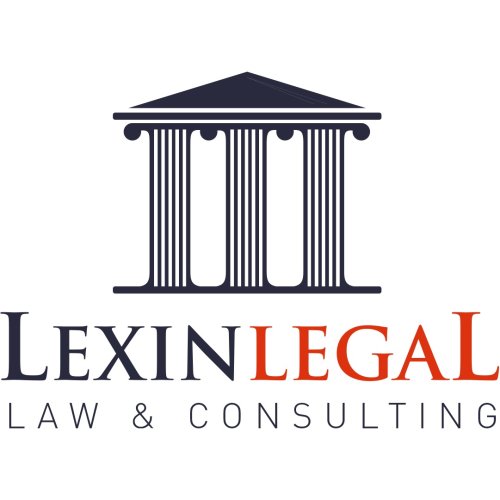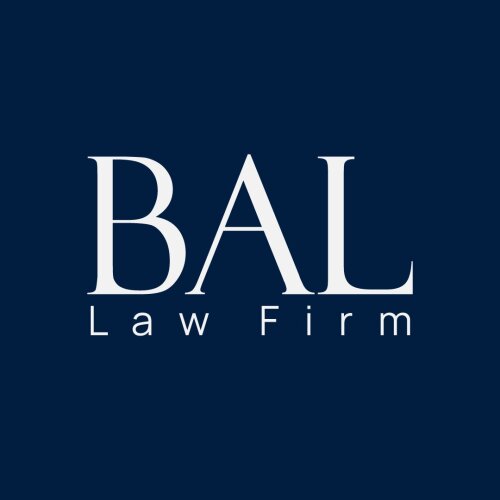Best Disability Lawyers in Istanbul
Share your needs with us, get contacted by law firms.
Free. Takes 2 min.
List of the best lawyers in Istanbul, Turkey
About Disability Law in Istanbul, Turkey
Disability law in Istanbul, Turkey, is a complex field that encompasses various rights, protections, and services available to persons with disabilities. This legal area ensures that individuals with disabilities are provided with equal opportunities and are protected against discrimination in employment, education, healthcare, and other facets of life. The legal framework in Turkey is guided by the principle of inclusivity and the obligation to remove barriers, enabling people with disabilities to participate fully in society.
Why You May Need a Lawyer
There are several situations where seeking legal assistance might be necessary for individuals facing disability-related issues. Common circumstances include disputes over accessibility in public buildings, discrimination in the workplace or educational settings, difficulties in receiving social services or benefits, and cases of denied access to healthcare. A lawyer specializing in disability law can offer guidance and support, helping individuals understand their rights and navigate the legal system in Istanbul to address and resolve such issues.
Local Laws Overview
In Istanbul, the legal framework concerning disabilities is comprised of national laws, international agreements ratified by Turkey, and specific local regulations. The principal national legislation is the Law on Persons with Disabilities (No. 5378), which mandates accessibility, non-discrimination, and the promotion of social inclusion. Additionally, Turkey is a signatory to the United Nations Convention on the Rights of Persons with Disabilities (UNCRPD), which imposes international obligations. Local regulations require public and private entities to adhere to accessibility standards and provide reasonable accommodations to ensure full participation for people with disabilities.
Frequently Asked Questions
What is the definition of a disability under Turkish law?
According to Turkish law, a disability is defined as a long-term physical, mental, or sensory impairment that may hinder an individual's full and effective participation in society on an equal basis with others.
How does the law protect against discrimination?
The Law on Persons with Disabilities and related regulations explicitly prohibit discrimination based on disability in employment, education, healthcare, and other areas, requiring institutions to provide reasonable accommodations.
Are businesses required to make their facilities accessible?
Yes, both new and existing businesses are required to comply with accessibility standards to ensure that people with disabilities have equal access to facilities and services.
What are reasonable accommodations?
Reasonable accommodations refer to necessary and appropriate modifications and adjustments that do not impose a disproportionate or undue burden, ensuring accessibility and participation for persons with disabilities.
How can I file a complaint about lack of accessibility?
Complaints regarding accessibility and discrimination can be filed with the local municipal authorities or other relevant governmental bodies such as the Ministry of Family and Social Policies.
Are there financial benefits for people with disabilities?
Yes, individuals with disabilities may be eligible for various financial benefits, including disability pensions and subsidies for assistive devices, depending on the extent of their disability and their financial situation.
Can children with disabilities access education tailored to their needs?
The Turkish education system is legally required to provide inclusive education, ensuring that children with disabilities have access to schooling that accommodates their specific needs.
What support is available for families of persons with disabilities?
Various governmental and non-governmental organizations offer support to families, including counseling, financial aid, and respite care services, to help manage the challenges associated with caring for a person with a disability.
Is public transport accessible for people with disabilities?
Efforts are being made to increase accessibility within Istanbul’s public transport system, including buses, trams, and metro stations, although the level of accessibility may vary.
How can individuals ensure their rights are upheld?
Individuals can ensure their rights are upheld by staying informed about their legal rights and seeking legal support from qualified professionals when necessary to address any violations or challenges they face.
Additional Resources
There are several organizations and governmental bodies in Istanbul and Turkey that can provide support and information for those dealing with disabilities. These include the Ministry of Family and Social Policies, municipalities with specific disability services departments, and non-governmental organizations like the Turkey Disabled Association and the Foundation for Children with Disabilities. These organizations can offer guidance, resources, and various forms of support to individuals and families.
Next Steps
If you find yourself needing legal assistance in disability matters in Istanbul, the first step is to consult with a lawyer who specializes in disability law. This can be done by reaching out to legal aid societies, bar associations, or directly contacting a private attorney. It is crucial to gather all relevant documentation and details surrounding your case to provide the lawyer with a comprehensive overview of the situation. Understanding your rights and the legal process will empower you to take the necessary actions to safeguard your interests and achieve a favorable outcome.
Lawzana helps you find the best lawyers and law firms in Istanbul through a curated and pre-screened list of qualified legal professionals. Our platform offers rankings and detailed profiles of attorneys and law firms, allowing you to compare based on practice areas, including Disability, experience, and client feedback.
Each profile includes a description of the firm's areas of practice, client reviews, team members and partners, year of establishment, spoken languages, office locations, contact information, social media presence, and any published articles or resources. Most firms on our platform speak English and are experienced in both local and international legal matters.
Get a quote from top-rated law firms in Istanbul, Turkey — quickly, securely, and without unnecessary hassle.
Disclaimer:
The information provided on this page is for general informational purposes only and does not constitute legal advice. While we strive to ensure the accuracy and relevance of the content, legal information may change over time, and interpretations of the law can vary. You should always consult with a qualified legal professional for advice specific to your situation.
We disclaim all liability for actions taken or not taken based on the content of this page. If you believe any information is incorrect or outdated, please contact us, and we will review and update it where appropriate.
















